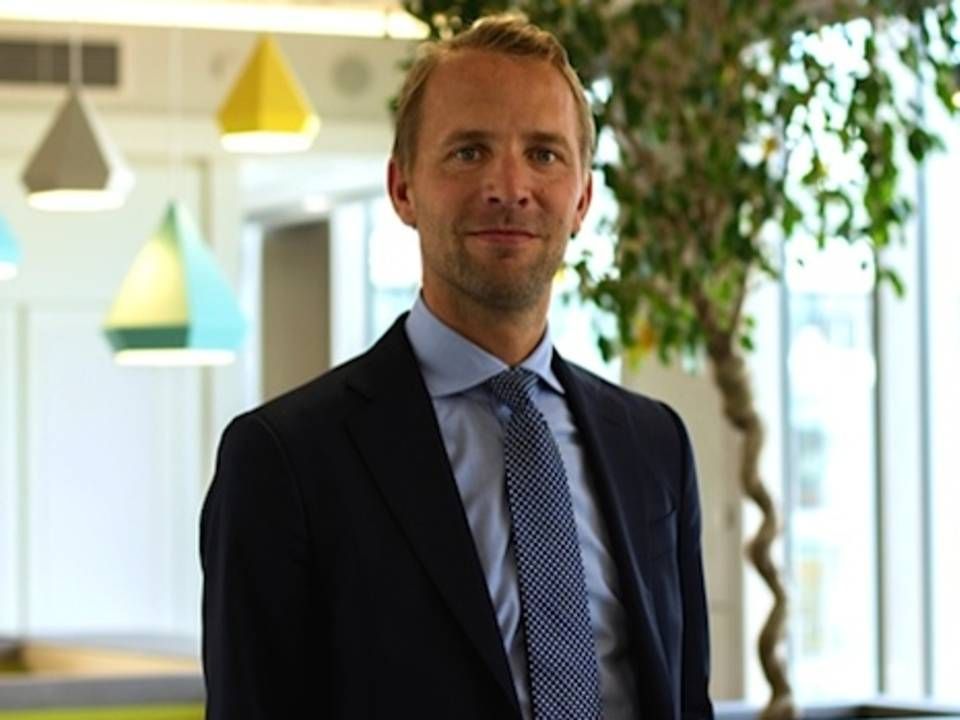Jupiter AM prepares for 2022 after a year of integrating acquisition and rebranding

What has been your team's most important initiative in 2021?
"2021 was a tricky year in terms of planning and getting access to clients, but we have continued to focus on being close to our clients and understanding their challenges and needs.
Our goal is to give both existing and prospect clients a personalised and positive experience that hopefully exceeds their expectations. We like our clients to feel that they are important, regardless of size, and we are keen for them to get good access to our expertise in London i.e. through the fund manager teams.
The integration of new strategies from the Merian Global Investor acquisition in 2020 and the rebranding of Jupiter has been very important in 2021."
How has your business in the Nordic region developed over the past year?
"The past year has been a good year for the Jupiter Nordic office, we are continuing to grow our business and expand our footprint in the region. We are pleased to see interest in our existing long-standing investment strategies such as European Equities, Japan Equities, GEM Equities and Global Unconstrained Fixed Income.
This is also the case for newly launched strategies such as global equity growth unconstrained, managed by NZS Capital in the US and global sustainable equities. We are very optimistic for 2022, as we have a solid and interesting pipeline of prospective clients and new strategies."
Which three themes will be most important for you and your team in 2022, and why?
"Continuing to grow the business and footprint will continue to be important in 2022. We will still be focusing on our flagship strategies, but we will also bring in new or less established investment capabilities to the region.
I would say that active management is in favor again, where investors are looking for more flexible high conviction and unconstrained strategies to complement their core or passive investments. This should be very favourable for an active and high conviction manager as Jupiter."
Do you expect to hire new people for the Nordic team in 2022?
"We look forward to continued international growth, including in the Nordics and, as we do this, we will look to add selected resources to provide a high level of service to our clients, as Jupiter has made a long term commitment to the region. Given the many uncertainties of the current environment within and outside of the industry, it is difficult to predict whether or not this will happen in 2022."
On a personal level, what is your most important professional goal in 2022?
"I would like to see more clients in person. Whether through events or one-to-one meetings, client interaction will be key. I look forward to further developing my skills in sustainable investing by making the most of the relevant CFA course that Jupiter offers to all employees."
How has competition in the Nordic market evolved over the past two years?
"The competition in the Nordics is still fierce! We have global players, more focused international and local fund houses, investment boutiques, and of course the asset management arms of the local Nordics banks, all competing for client's assets.
If you do not have anything that stands out from the crowd, it is very hard to be successful. I would argue it has been an advantage to be based in Stockholm during the last year where we have been able to meet with clients face to face, in line with required restrictions.
The introduction of Taxonomy classification has transformed the Nordic fund market and clients are almost entirely focused on the funds which are classified as Article 8 and 9. For some investors, Article 6 funds are no longer investable as they view these funds as non-sustainable. Whether this approach is the right one is debatable, but the fact is that it will further increase competition regardless."
Related articles
Jupiter AM onboards funds on Swedish insurance platform
For subscribers















